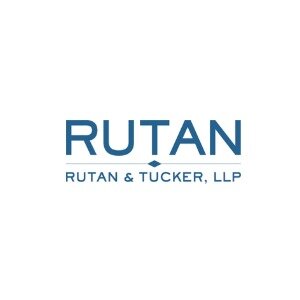Best Securities Lawyers in United States
Share your needs with us, get contacted by law firms.
Free. Takes 2 min.
Or refine your search by selecting a city:
List of the best lawyers in United States
About Securities Law in United States
Securities law in the United States is a complex and intricate field focused on regulating the securities industry, which includes stocks, bonds, and other financial instruments. The primary goal of securities law is to ensure transparency, fairness, and efficiency in the financial markets. It protects investors by requiring accurate disclosure of financial information and by preventing fraudulent practices. Securities are governed by a combination of federal and state laws, with significant oversight by the U.S. Securities and Exchange Commission (SEC).
Why You May Need a Lawyer
There are several scenarios where individuals or businesses may require legal assistance in the field of securities. These include compliance with SEC regulations, navigating public offerings and private placements, dealing with insider trading allegations, resolving disputes between shareholders, and handling mergers and acquisitions. Additionally, legal help may be needed when understanding complex financial instruments or when facing enforcement actions by regulatory bodies.
Local Laws Overview
The securities law landscape in the United States is shaped by both federal and state regulations. The Securities Act of 1933 and the Securities Exchange Act of 1934 are key federal statutes governing securities. At the state level, "Blue Sky Laws" provide additional regulations to protect investors against fraud. These laws require registration of securities offerings and sales, and they vary by state. The SEC, along with self-regulatory organizations like FINRA, plays a critical role in enforcing these laws and overseeing the securities industry.
Frequently Asked Questions
What is a security?
A security is a financial instrument that holds some type of monetary value, including stocks, bonds, options, and mutual funds.
What is the role of the SEC?
The U.S. Securities and Exchange Commission is responsible for enforcing federal securities laws and regulating the securities industry to protect investors and ensure a fair market.
What are Blue Sky Laws?
Blue Sky Laws are state-level regulations in the U.S. that are designed to protect investors from fraudulent sales practices and securities.
What constitutes securities fraud?
Securities fraud involves deceptive practices in the stock or commodities markets, including false information dissemination, insider trading, or misleading financial statements.
What is insider trading?
Insider trading refers to the buying or selling of securities based on nonpublic, material information. It is illegal under U.S. law because it breaches a position of trust.
How does one go about registering securities?
Securities registration typically involves filing a registration statement with the SEC, which includes essential details like the company's financial condition and terms of the security offering.
What are the penalties for violating securities laws?
Penalties can range from fines and disgorgement of profits to suspension from the market and imprisonment, depending on the violation's severity.
Can individuals invest in securities without a broker?
Yes, individuals can invest directly in some securities through direct stock purchase plans, dividend reinvestment plans, or through investment platforms with low or zero commissions.
What is the difference between an IPO and a secondary offering?
An IPO, or Initial Public Offering, is the first sale of stock by a private company to the public. A secondary offering refers to the sale of shares that have already been issued by the company.
What are exempt securities?
Exempt securities are those that do not require registration with the SEC due to their nature, such as government securities or those issued by nonprofit organizations.
Additional Resources
For additional resources, consider the following:
- The U.S. Securities and Exchange Commission (SEC) provides extensive resources and regulatory information.
- FINRA (Financial Industry Regulatory Authority) offers resources and oversight for securities firms.
- The Securities Industry and Financial Markets Association (SIFMA) promotes industry standards and provides educational materials.
- The North American Securities Administrators Association (NASAA) offers resources and guidance at the state level.
Next Steps
If you need legal assistance in securities, consider the following steps:
- Consult with a securities lawyer who specializes in your specific area of need, whether it's compliance, litigation, or transactions.
- Gather all relevant documents and information related to your case or inquiry.
- Research experienced law firms or attorneys with strong reputations in securities law.
- Consider reaching out to regulatory bodies for additional guidance and resources if necessary.
Taking proactive steps can help you navigate the complexities of securities law more effectively.
Lawzana helps you find the best lawyers and law firms in United States through a curated and pre-screened list of qualified legal professionals. Our platform offers rankings and detailed profiles of attorneys and law firms, allowing you to compare based on practice areas, including Securities, experience, and client feedback.
Each profile includes a description of the firm's areas of practice, client reviews, team members and partners, year of establishment, spoken languages, office locations, contact information, social media presence, and any published articles or resources. Most firms on our platform speak English and are experienced in both local and international legal matters.
Get a quote from top-rated law firms in United States — quickly, securely, and without unnecessary hassle.
Disclaimer:
The information provided on this page is for general informational purposes only and does not constitute legal advice. While we strive to ensure the accuracy and relevance of the content, legal information may change over time, and interpretations of the law can vary. You should always consult with a qualified legal professional for advice specific to your situation.
We disclaim all liability for actions taken or not taken based on the content of this page. If you believe any information is incorrect or outdated, please contact us, and we will review and update it where appropriate.
Browse securities law firms by state in United States
Refine your search by selecting a state.
















